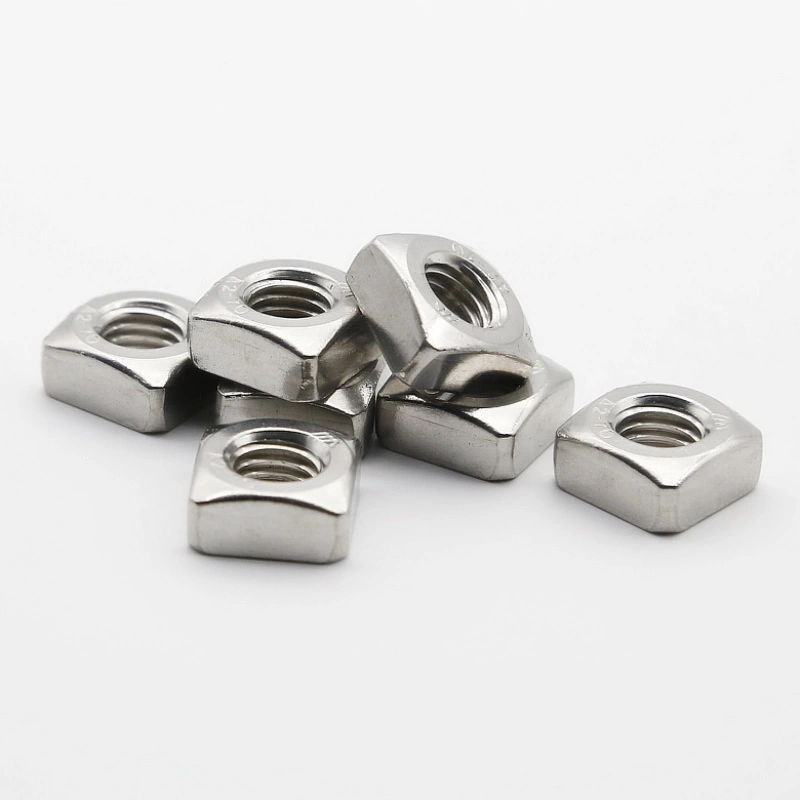

Brass Flange Nuts for Secure and Durable Connections in Various Applications
Dec . 03, 2024 19:37 Back to list
Brass Flange Nuts for Secure and Durable Connections in Various Applications
Understanding Brass Flange Nuts A Comprehensive Overview
Brass flange nuts are essential components in various engineering and construction applications. They are known for their durability, resistance to rust and corrosion, and aesthetic appeal. This article will delve into the characteristics, applications, advantages, and installation techniques related to brass flange nuts.
What is a Brass Flange Nut?
A flange nut is a specialized type of nut that features a wide flange at one end. This flange provides additional bearing surface and helps distribute the load over a larger area. Brass, an alloy of copper and zinc, is often used to manufacture these nuts due to its favorable mechanical properties. The unique combination of metals in brass offers exceptional resistance to corrosion, making it a popular choice for both indoor and outdoor applications.
Characteristics of Brass Flange Nuts
1. Material Composition The primary component of brass flange nuts is brass, composed of copper and zinc. The proportion of these metals can vary, influencing the overall strength and corrosion resistance. 2. Load Distribution The flange design allows for an even distribution of load, reducing the chances of damage to the surfaces being fastened. This is particularly useful in applications where vibration or dynamic loads are present.
3. Aesthetic Qualities Brass has a distinctive gold-like appearance, making it an attractive option for decorative applications. Whether used in architectural fittings or visible machinery, brass flange nuts can enhance the overall aesthetic.
4. Corrosion Resistance Due to its copper content, brass is highly resistant to corrosion in various environments, including moisture-rich or corrosive settings.
Applications of Brass Flange Nuts
Brass flange nuts find their use in a variety of industries and applications
1. Automotive Industry These nuts are essential in securing components in vehicles, particularly in areas exposed to moisture and varying temperatures.
2. Plumbing Brass is commonly used in plumbing fixtures due to its resistance to rust. Flange nuts in plumbing ensure leak-proof connections for pipes and fittings.
3. Electrical Industry Due to their conductive properties, brass flange nuts are often used in electrical components, providing secure fastening while facilitating electrical connectivity.
brass flange nut

4. Construction In building structures, brass flange nuts are used to secure metal fixtures and fittings, providing structural integrity and reliability.
Advantages of Using Brass Flange Nuts
1. Durability The robust nature of brass ensures that these nuts can withstand mechanical stress and environmental exposure without failing.
2. Ease of Use The design of flange nuts allows for easy installation, as the wide flange helps prevent slipping during tightening.
3. Longevity Brass flange nuts have a long service life, which reduces the need for frequent replacements, ultimately saving costs.
4. Versatility Their various applications in different industries make them a versatile fastening solution.
Installation Techniques
1. Tools Required The installation of brass flange nuts can be done using standard hand tools such as wrenches or pliers. It’s essential to choose the correct size to prevent damage to the nut.
2. Tightening When tightening, it’s crucial to apply uniform pressure to avoid stripping the threads. A torque wrench can be beneficial to achieve the desired tension without over-tightening.
3. Lubrication In some applications, using a lubricant can help ease the installation process and improve the longevity of the connection by reducing wear.
4. Inspection After installation, regular inspections are recommended to ensure the nuts remain securely fastened and show no signs of wear or corrosion.
Conclusion
Brass flange nuts are vital components in modern engineering and construction. Their unique properties, such as load distribution, aesthetic appeal, and corrosion resistance, make them suitable for diverse applications. Understanding the characteristics, advantages, and proper installation techniques of brass flange nuts can lead to safer and more efficient designs in various projects. Whether in automotive, plumbing, electrical, or construction settings, their reliable performance is undeniable, solidifying their place as a preferred choice in fastening solutions.
Latest news
-
Hot Dip Galvanized Bolts-About LongZe|High Strength, Corrosion Resistance
NewsJul.30,2025
-
High-Strength Hot Dip Galvanized Bolts - Hebei Longze | Corrosion Resistance, Customization
NewsJul.30,2025
-
Hot Dip Galvanized Bolts-Hebei Longze|Corrosion Resistance&High Strength
NewsJul.30,2025
-
High-Strength Hot-Dip Galvanized Bolts-Hebei Longze|Corrosion Resistance&High Strength
NewsJul.30,2025
-
Hot Dip Galvanized Bolts-Hebei Longze|Corrosion Resistance&High Strength
NewsJul.30,2025
-
Hot Dip Galvanized Bolts - Hebei Longze | Corrosion Resistance, High Strength
NewsJul.30,2025

